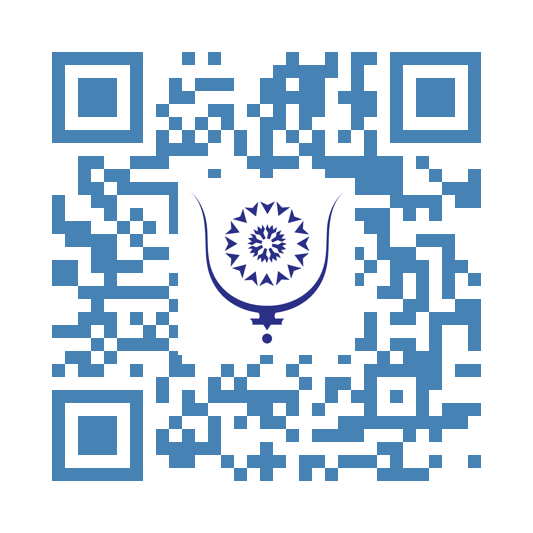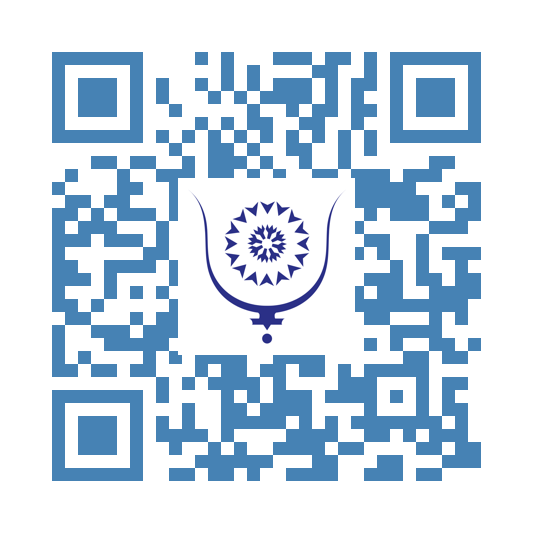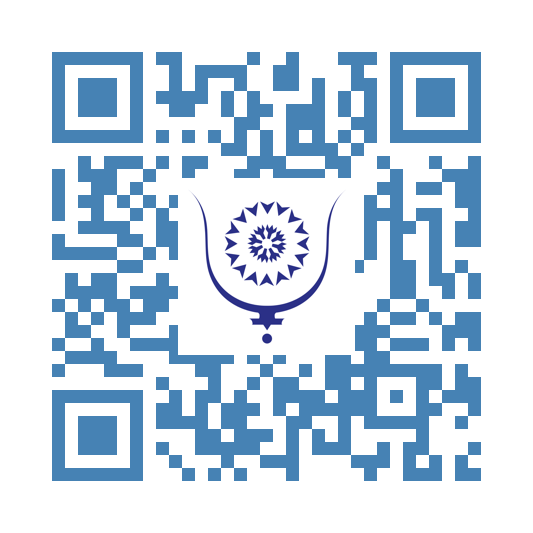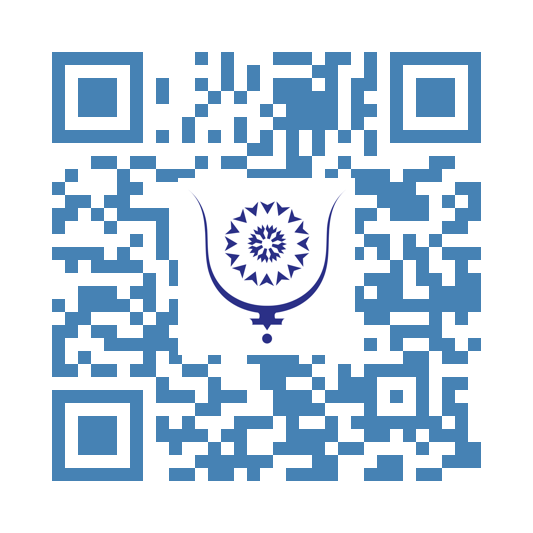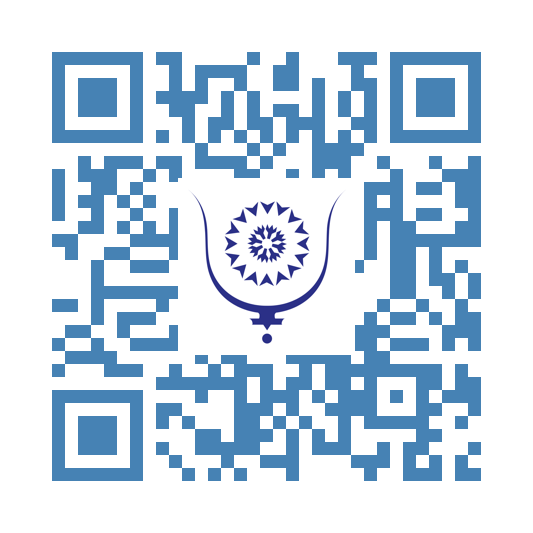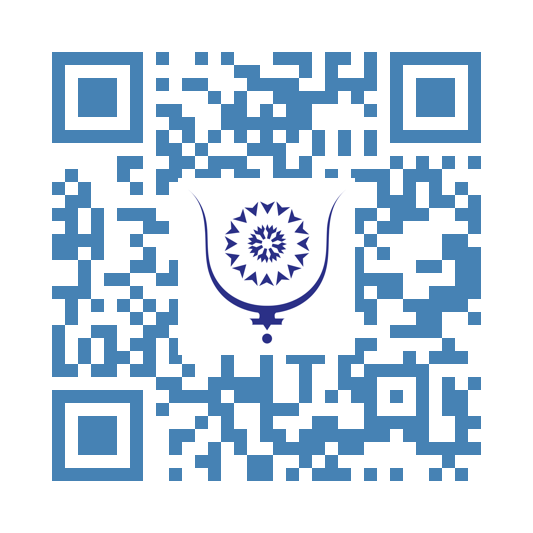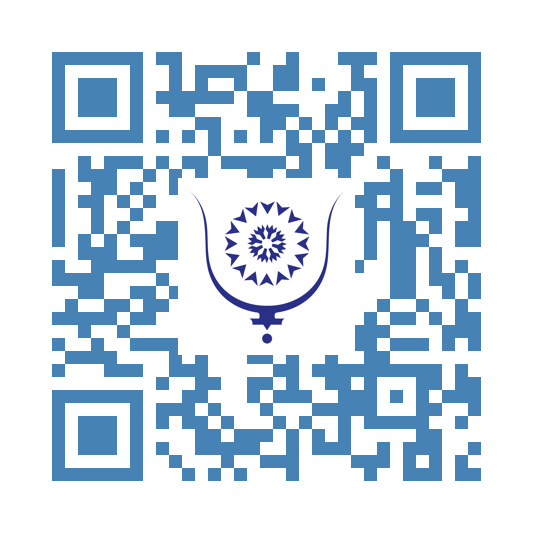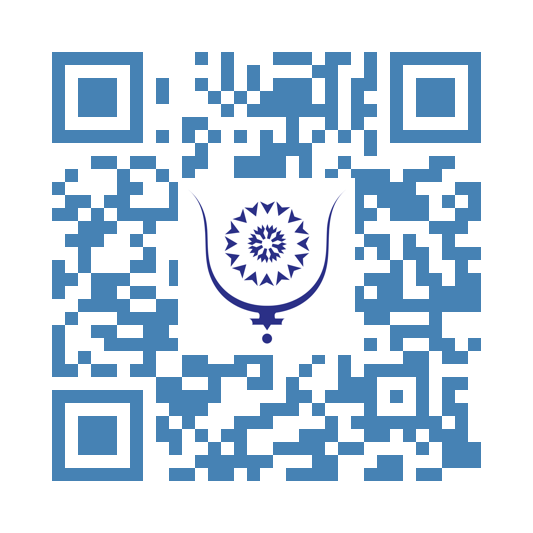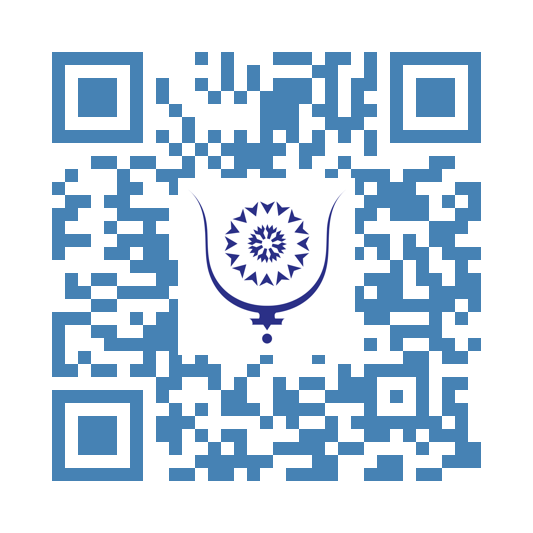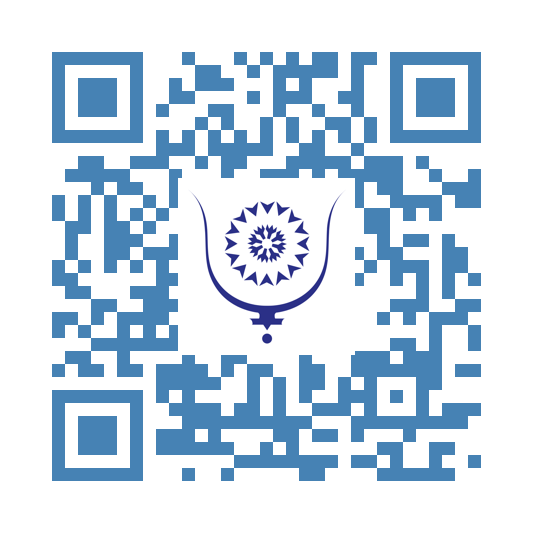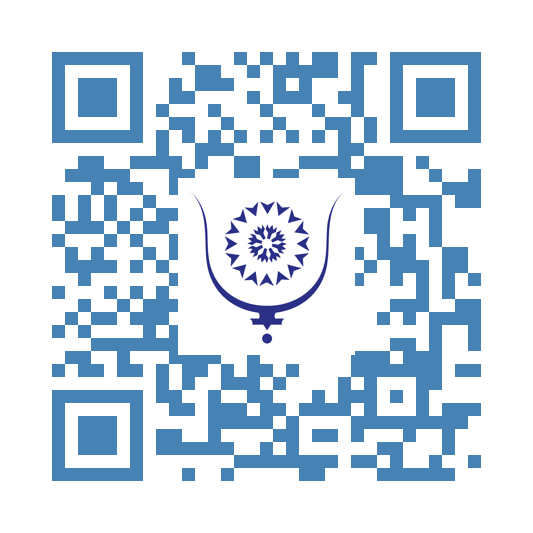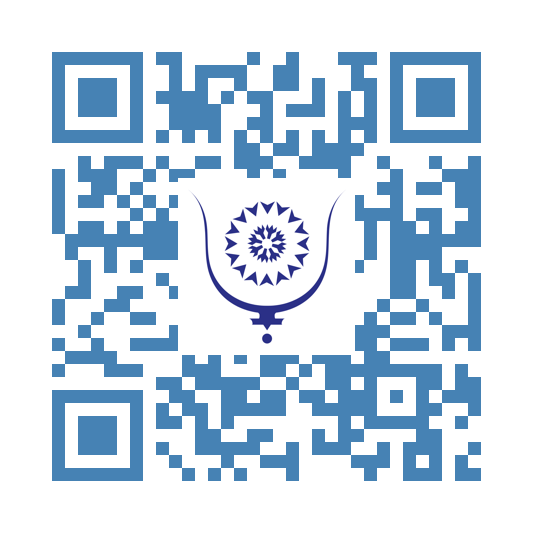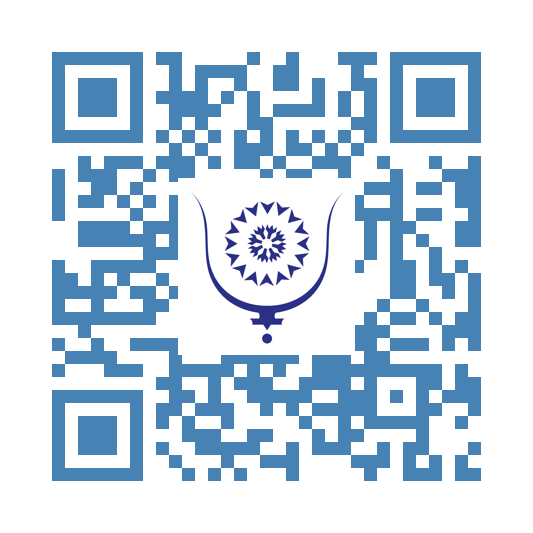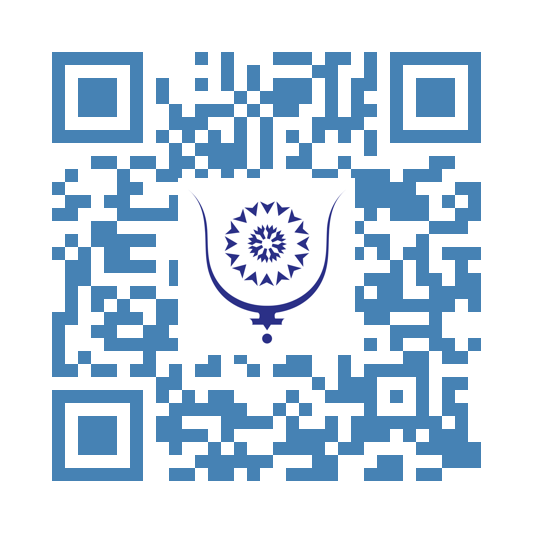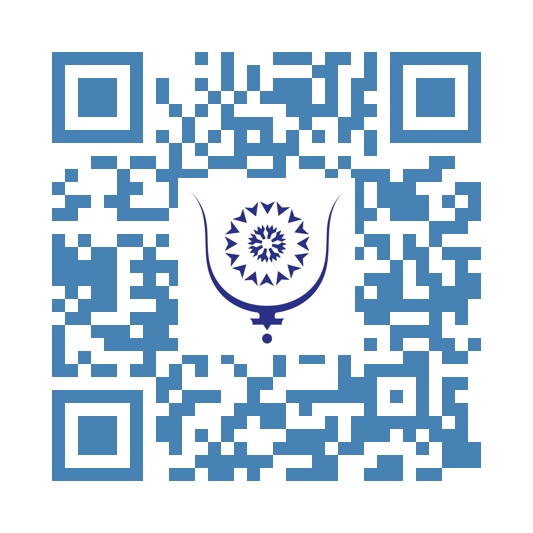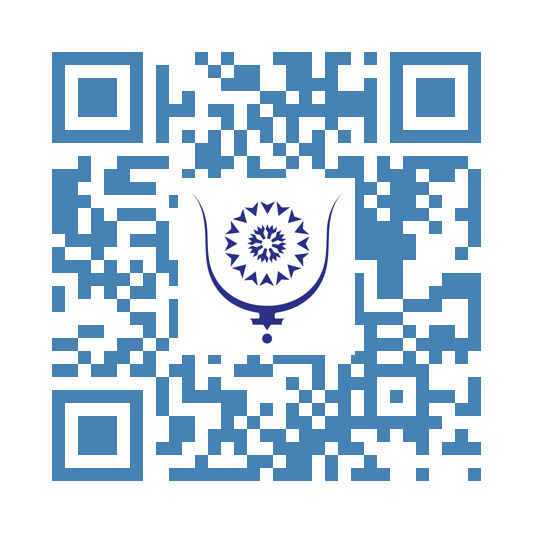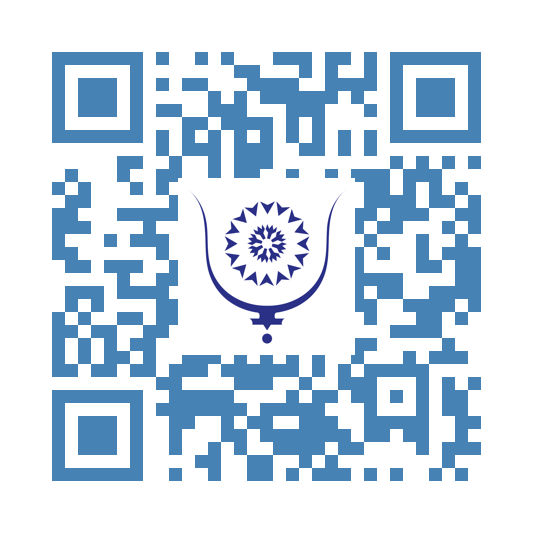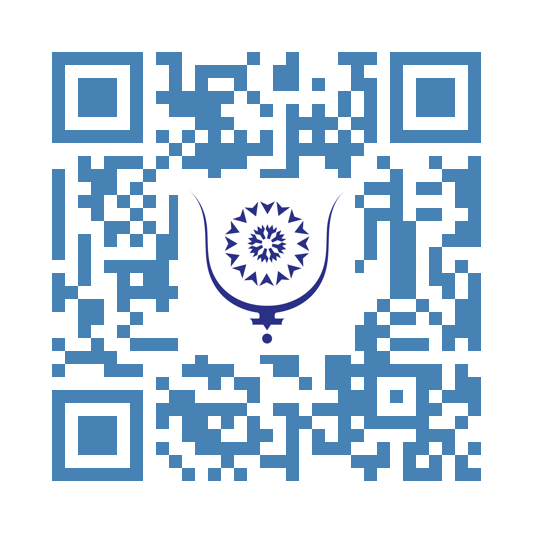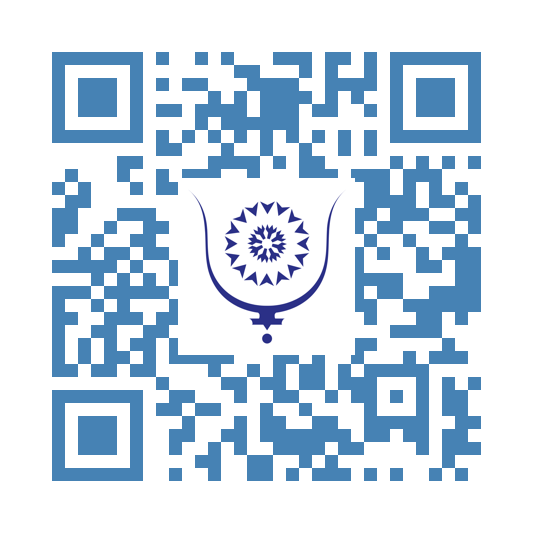Recognition of Palestine: Historic Gesture or Too Late?
235
The decision this week by several Western powers to recognize the State of Palestine could have been hailed as a founding moment in contemporary history. Coordinated and announced almost in unison, it seems to mark a decisive milestone in a conflict that has torn the Middle East apart for more than seven decades. Yet, between symbolic significance and concrete impotence, this gesture raises a dilemma: is it an act that will make history or a missed opportunity due to its tardiness? A recognition long awaited and especially delayed for numerous reasons, more or less understandable.
Since the proclamation of the State of Palestine by the PLO in 1988, at the behest of the most alert Arab countries, with Morocco leading the way, marking the transition from an armed struggle bordering on terrorism to a reliable entity, a political interlocutor and partner, more than 140 countries, mainly from the Global South, have taken the step of recognition. It is the Western powers, particularly European ones, that were slow to align. Yet, their political, diplomatic, and financial weight could have, in the 1990s or 2000s, influenced the intense negotiations then underway and given substance to the two-state solution promoted by the Oslo Accords.
By choosing to act today, in a context where the prospect of a viable Palestinian state seems more distant than ever, many facts having shifted on the ground, the Western powers appear to recognize more the legitimate cause of a people than they make it effective. The Oslo Accords have been bypassed and are now worthless. What remains is the symbolic weight of recognition.
However, it would be reductive to minimize the significance of this gesture. In the diplomatic arena, official recognition could be a major symbolic weapon: it would confer additional legitimacy to Palestine, strengthen its positions in international bodies, and create a political precedent. For Israel, it sends a clear message: the patience of its traditional allies may have eroded in the face of the deadlock of the status quo and the continued expansion of settlements in particular.
Unfortunately, it also reveals Western impotence.
Beyond the symbol, the reality remains harsh: Gaza remains under siege, the West Bank fragmented, and East Jerusalem under constant tension.
Without coercive mechanisms, without economic or diplomatic pressure, these announcements risk remaining a moral signal rather than an instrument of transformation. In other words, the West writes a declaration in history but without real control over its course, even though it is decisions by this same West that are at the origin of the extremely dramatic situation in the region.
So, what will we talk about after time has taken its toll? Has the West marked or missed history?
The recognition of the State of Palestine by these Western powers remains an important diplomatic step but also reveals a paradox: it comes at a time when the solution it was supposed to endorse seems more distant than ever. To make history is to act when action can change the fate of peoples. To miss it is to settle for observing, too late, what history has already decided.
The ambiguity is there: this is a gesture heavy with symbols but weak in concrete effects, and above all, a meeting probably too late to have the historical impact it could have had two or three decades ago.
It remains to address the Palestinians themselves: The numerous militant factions attached to unsavory causes and ideologies should cease their harmful game and all should align around an intelligent and achievable line. Palestinians should seize the opportunity with pragmatism and especially independence in their way of understanding, seeing, and acting. Perhaps this is the condition for these recognitions to weigh on the course of history.
Share:
Recognition of Palestine: Historic Gesture or Too Late?
copy:
https://bluwr.com/p/398552621
My Generation
353
I come from a generation that never knew electronic tablets. Our tablets were wooden boards, where we copied verses from the Quran, learned them by heart, and recited them before the fqih. A single mistake meant the sting of a stick, followed by the laughter of classmates.
We never begged our parents for toys. We built them ourselves—rolling bicycle rims with a stick for handlebars, imitating the roar of engines with our mouths, or crafting skateboards from wood and ball bearings. Our games were simple but endless: hide-and-seek, marbles, spinning tops.
We did not need private lessons. Our teachers were masters of their craft, teaching with passion and devotion. We discovered poetry, crossword puzzles, and the joy of words at an early age. Respect for elders was a rule, and care for the younger ones a duty.
Holidays were not for travel but for small jobs that earned us coins to buy books—Camus, Hugo, Balzac, and others that today’s youth rarely open. We lived fully in the real world, untouched by the virtual.
Our joys were simple: an old movie at the cinema, a homemade sandwich of tomatoes and peppers, afternoons at the public pool, or slipping into a football match just before the final whistle. One black-and-white TV channel was enough, and a transistor radio was a treasure.
We kissed our parents’ hands, respected teachers and policemen, shared our scholarship money with siblings, and saved schoolbags and textbooks for years. We listened to our grandmothers’ tales in the dark, our imaginations weaving monsters, heroes, and enchanted princesses.
We knew the Solex, the 2CV, the Dauphine, the R8. We wrote letters and waited for the postman as if he were a hero. Pocket money came only at Eid, and our first driver’s license only after our first paycheck. We grew up running errands, carrying bread to the oven, water from the fountain, groceries on credit in the neighborhood shop.
We learned values the hard way—through discipline, slaps, and the watchful eyes of parents, neighbors, and teachers. Elders were always right. We listened more than we spoke.
That is why my generation is so different from today’s. We are often misunderstood, dismissed as outdated—even by our own children. Yet I cannot help but feel that those who never lived what we did have truly missed something.
Dr. Fouad Bouchareb
All rights reserved
Share:
My Generation
copy:
https://bluwr.com/p/397255366
Media and Intellectual Nihilism: A Poison for Public Debate in Morocco
398
For some time now, a worrying phenomenon has been spreading in the Moroccan public space: the rise of a nihilistic discourse, sometimes fatalistic and in some aspects anarchistic, propagated by influencers, a certain football audience, journalists, some academics, and even political leaders. This discourse, marked by a radical rejection of any perspective or the multiple tangible signs of progress, reflects a troubling intellectual and civic drift. Instead of stimulating collective reflection and citizen engagement, it fosters distrust, resignation, and disenchantment with the country's future, its institutions, and perhaps even its mode of operation. The prevailing impression is that of a pessimistic trap with no exit.
This nihilism expresses itself through rhetoric saturated with despair and defeatism. Themes of health and education are overused as if they were completely at a standstill. Yet, tens of thousands of Moroccans are successfully treated daily in public hospitals, and all children attend school, many achieving spectacular success that draws admiration internationally.
The discourse reduces Morocco to a state of chronic failure, trapped by political, economic, and social blockages, condemned never to progress. Yet, such a radical and caricatural view obscures the real advances the country has made over recent decades: modern infrastructure, stability in a troubled region, and steady, even impressive, improvements in all social indicators.
Admittedly, these improvements remain insufficient and sometimes unevenly distributed, but outright denial amounts to ignoring the complexity of development, which no model—economic, societal, or political—has managed to resolve perfectly.
Unfortunately, voices spreading these views gain an audience and create a toxic climate for society. Mixed with ideology and unhealthy negativity, they often present religion as a political solution to all problems, while international experience disproves this.
The dissemination of such discourse has consequences. It fuels collective powerlessness and weakens trust in institutions. By instilling the idea that any reform effort is doomed to fail, it encourages social resignation and lays fertile ground for latent, undefined, and immeasurable anger. This context favors demagogic excess, media escalation, and the systematic rejection of any political initiative.
Ultimately, instead of awakening consciences, this nihilism plunges minds into ideological paralysis.
Young people are particularly threatened by this, already facing immense challenges like unemployment, limited access to opportunities, and the quest for social recognition. They are especially exposed to such disorienting messages. Deprived of positive role models, they are tempted toward fatalism, losing confidence in the future and renouncing any form of civic engagement. Yet, a society that despairs of its youth condemns itself to stagnation and decline.
Official media, hampered by lethargy, disconnection from reality, or an unjustified fear of taking risks—both from their leaders and journalists—do little to impose or at least propose an alternative discourse of lucidity and hope.
This is not to deny Morocco’s real challenges: corruption, social inequalities, incompatibility of the education system with modernity, unproductive universities in knowledge and innovation, health system exclusions in some regions, lack of effective governance in many sectors, excessive administrative weight, among others. But these challenges cannot justify an exclusively bleak interpretation of reality.
The responsibility of intellectuals, journalists, and media figures is to propose a critical but constructive vision.
The urgency is to rehabilitate a discourse of balanced lucidity, which recognizes blockages while valuing progress margins. A discourse that denounces failures without annihilating hope. A discourse that highlights shortcomings but also offers solutions. A discourse that holds citizens responsible, that critiques their initiatives and behaviors, that highlights their rights but above all their duties and obligations.
The prevailing nihilism that settles in parts of Moroccan public debate is a slow but dangerous poison. It undermines trust, deepens social fractures, and diverts youth from constructive action and responsibility. Morocco needs critical but responsible voices capable of nurturing a collective project founded on trust, innovation, and the will to build. Without this, society risks locking itself in a vicious circle where cynicism suffocates imagination and inertia becomes inevitable.
Long ago, some were convinced the country was bankrupt; they spoke of an imminent "heart attack." Nothing of the sort happened. On the contrary, the country has advanced, continually progressing, modernizing, and developing. Morocco is increasingly asserting itself in economic emergence and social development, which must not be denied.
Share:
Media and Intellectual Nihilism: A Poison for Public Debate in Morocco
copy:
https://bluwr.com/p/396670336
The Alleys of Marrakech
421
The Alleys of Marrakech
Whether on foot or by carriage
They are magnificent, the alleys of Marrakech.
What a pleasure to wander through these shaded paths,
Changing my route each time I pass.
I mingle with the crowd,
The atmosphere is lively, the spirit proud.
The Marrakchis are funny, always cool,
Full of charm, they follow no rule.
The Spice Square feels like a spell,
From the terraces above, the view is swell.
It leaves romantics lost in dreams,
Where everything is more than it seems.
Herbalists sell their fragrant spices,
Pets abound, with no disguises.
Once at Jemaa el-Fna, everything bursts in color,
Scents rising everywhere, one after the other.
Different dishes with countless flavors
Are served here, to everyone’s favors.
A true delight,
A magical sight,
A festival of culinary art,
From a millennial cuisine with heart.
The snakes taunt the curious who stare,
Cobras bare their fangs to the air.
Only the flute’s enchanted sound
Can soothe their ardor as it floats around,
Amusing eyes that watch with glee—
The charmers’ dance, their mystery.
Mischievous monkeys, bold and sly,
Beg for peanuts or coins to buy.
They leap, they spin, they clown around,
Acrobats playing for the crowd.
Fruit juices please the wandering souls,
But as for me—I love the snails.
The tooth-pullers draw in the reckless,
With makeshift pliers, their work is merciless.
Molars and canines, pulled without care,
No anesthesia, just cries in the air.
A pitiful trade,
For those betrayed
They’ll return again someday,
Hoping dentures will ease the pain away.
The café terraces all around
Are filled with life, night and day bound.
Different melodies blend and collide,
In the square, a noisy tide.
The clamor echoes, wild and strange,
A soundscape that never seems to change.
And when I head back, my mind still rings,
With the echoes that this city brings.
I know tomorrow I’ll return again,
On foot or by carriage, it’s all the same.
To these mythical places, where magic flows,
Marrakech, your charm forever grows.
Dr. Bouchareb Fouad
Marrakech, March 17, 2023
All rights reserved
Share:
The Alleys of Marrakech
copy:
https://bluwr.com/p/396374521
Age Is Just a Number
455
Age is nothing but a number,
Just the count of candles burning bright.
On this fourth day of December,
Sixty-eight flames light up my life.
They melt away like gentle magic,
Their wax flowing quietly down the candlesticks.
Shy as maidens, they reveal themselves,
Casting soft shadows
Across the four walls of my room—
Choreographing the loveliest of dances
To the rhythm of a tender melody,
As I sway with them in every direction.
They awaken my journeys,
The memories of the film of my life—
Moments of joy once savored,
And painful chapters overcome.
Sixty-eight candles still shine upon me.
But how many remain in the treasury of my years?
One? Two? Ten, or twenty?
Only God holds the answer.
They say age is just a number.
Yet the further we go along life’s path,
The more we sense the day when all will cease.
For me, only the present moment counts.
Eternity is not mine to claim—
Only God is eternal.
What matters is guarding the wealth of health,
And taming the burdens of illness.
Sixty-eight candles brighten my world,
And I choose to savor this moment
Now, and only now.
Dr. Fouad Bouchareb
All rights reserved
Wednesday, December 04, 2024
Share:
Age Is Just a Number
copy:
https://bluwr.com/p/395939889
The man of no conviction
532
Some people are born to run fast, some to write stories, and some to fill empty space. Empty space fillers come in many shades: normies, NPCs, consultants, and so on. The one we're discussing today is the Man of No Conviction. Let's dress up a portrait:
The Man of No Conviction never fights for anything. He's too cool for that. Changing things is for suckers who watched Naruto and took it too seriously. You can't be a Man of No Conviction if you're stupid. Thankfully, all Men of No Conviction happen to be smart, or at least smarter than those retards who try to do something about anything.
When born in a position of weakness, the Man of No Conviction immigrates. Playing life on hard mode is for suckers. But he's not a sucker, he's a born winner. Not because he actually wins, but because he never allows himself to think that he's lost. This type of behavior is apparent when The Man of No Convictions plays games: If he's losing at fifa, he'll start scoring against himself to deny his defeat. If he's playing a tabletop game, he'll go take a smoke the moment he stops winning and never come back.
So the Man of No Convictions usually switches servers (one needs to be comfortable while having no convictions) but his operating system never changes. His only allegience is to his undying belief that nothing is worth fighting for. If it's not easy, why even bother? A lot of immigrants are men of no conviction; that's why you never see them in protests to better the country that they move to. For the ruling class, these guys are a wet-dream. They can screw them over as much as they please. When things get too bad, they will finally listen to the racists, pack up their stuff and go back to their country. For the sociopathic elite, increasing the number of Men of No Conviction, either through demotivation or importation, provides a high that's only rivaled by dodging taxes and f**king children.
The main issue with the type of guy we're talking about isn't that he's selfish. It's that he is irrationally selfish. Even when the status quo does not benefit him, he cannot fathom the idea of doing something about it, especially if it involves other people. Collective action is always more effective at enacting change than individual efforts. But since he's usually in a position of weakness, collective action implies that there is a greater good. Ideas like altruism and greater good are obviously for faggots, so it's a hard pass. The Man of No Conviction does not go to protests, does not sign petitions, does not believe in charity, and does not even complain about how fucked things are. Actually, he secretly wishes he was one of the people responsible for how fucked things are. His ideal jobs range from drug dealer and cigarette marketer to Blackrock executive or corrupt dictator. After all, a flexible moral disposition is one his greatest strengths.
A lot of people in my generation are increasingly adhering to this persona. That's why e-commerce Buggati influencers are so popular. Gary Stevenson, ex-brokey turned ex-trader turned influencer, put it beautifully : " when you win at life, you win against the people competing with you. The people you grew up with and surrounded by. You leave these people behind and move on to compete with other people". In his case, he loved his people and decided to go back to help them out by starting a movement to tax the rich. To the Man of No Conviction, moving up in society is good especially because it allows him to look down on those who were his peers before. It is the ultimate validation for his way of life. A wonderful life of walking down the beaten path traced by various intelligence agencies and unbeatable power structures.
If your parents are like that, god forbid they try to give you a better life than the one they had. If your coworkers are like that, god forbid you get together to defend your common class interests. If you friends are like that, god forbid you ever ask them to do anything for you that requires more than the slightest bit of effort. Of course, if you call out a Man of No Conviction for who he is, he'll retreat to mockery (you are lame for trying to change things), blame shifting ( they never agreed to the basic expectations your relationship implies), and gaslighting (you're the one who started this).
Next time we'll discuss the exact opposite archetype : the woman of too many affiliations.
Share:
The man of no conviction
copy:
https://bluwr.com/p/394944231
Narcissism at its Extreme
565
How handsome he is,
the man with the hat!
A true Sagittarius,
one of a kind,
dignified and bold,
fantastic,
funny,
extravagant,
enigmatic,
mysterious,
curious,
a dreamer,
gentle
and rebellious at the same time.
For his family, he is an idol,
for his colleagues, he is kind and witty,
for his friends, a center of gravity.
His days overflow with activity.
He defies every law.
A piercing gaze,
commanding respect
and regard.
Sociable,
and rather helpful.
A sly smile
never leaves indifferent
those who cross his path.
Some admire him,
those who fight him end up retreating.
His beauty can be seen from afar,
though faded in certain corners.
Beneath his bright hat he conceals
secrets,
mysteries,
dreams,
and desires.
His charisma is real,
a gift from heaven.
His elegance envies no rival.
A hidden strength,
a star that sings in the heart of a lost night,
a love song from the past
that defies infinity—
and it is better this way.
Other stars,
dazzled and amazed,
in a serene sky,
repeat their refrains
while awaiting the break of dawn,
the rising of the sun,
and the warmth of its rays, one after the other.
His kindness is legendary,
his friendship exemplary,
his reputation crosses borders
and rivals his peers.
Dr. Fouad Bouchareb
All rights reserved
Agadir, July 17, 2025
Share:
Narcissism at its Extreme
copy:
https://bluwr.com/p/394604416
The Barefoot Doctors
678
A French text left a lasting impression on me during my first year of secondary school at Lycée Moulay Ismail in Meknes. It was even decisive in my early choice to pursue medical studies.
My French teacher, Mr. Rossetti, had assigned us to summarize an article entitled The Barefoot Doctors.
I was deeply fascinated by the story of these Chinese practitioners, so named, who tirelessly traveled across their vast country to provide care to local populations. They braved harsh living conditions but fulfilled their mission with remarkable dedication and selflessness. They never complained, nor did they ever ask for money in return for their services. Their practice was one of proximity, modest in its means, but essential, effective, and invaluable for vulnerable communities—poor, yet dignified and grateful. Their working days were long, often exhausting, and the climate conditions harsh and extreme.
After completing my medical studies, and following a brief experience in the private sector, I chose to embrace a career in public health. I too wanted to become one of those barefoot doctors. My decision had been made long before, and my dream finally came true on November 8, 1983, just after the commemoration of the glorious Green March. For me, it was a sign of destiny.
During more than thirty-three years of service in public health, I had the privilege of working alongside many wonderful doctors who, like me, had chosen this path. Several were from my cohort at the Faculty of Medicine in Rabat—an exceptional class—others were older, and still others were younger colleagues who later joined our ranks.
These physicians were the true barefoot doctors. They chose to serve Moroccans in remote areas where living, housing, and working conditions were extremely difficult. Salaries were meager. Yet greed and corruption had no place. The rare deviations were quickly identified and corrected by peers. Absenteeism was forbidden, and leave was short. Very soon, a relationship of trust and symbiosis developed between the doctors and the local populations. Many lived for years in these remote regions without ever considering leaving.
Some of them took part in health campaigns and medical coverage operations without ever requesting compensation. Many died in total anonymity, fighting epidemics—the Covid-19 pandemic being a striking example. Others live today in modest, sometimes precarious retirement, but remain dignified and proud of the duty they fulfilled.
It is precisely this kind of practitioners that our country lacks today. These are the doctors Morocco needs: the barefoot doctors.
Dr. Fouad Bouchareb
Former Senior Official, Ministry of Health
Rabat, September 25, 2025
All rights reserved
Share:
The Barefoot Doctors
copy:
https://bluwr.com/p/393271536
At 80 years old, the UN wavers between its founding ideal and tragic impotence…
783
As every year, at the end of September, the opening of the General Assembly seeks solemnity, and is often described as historic. But is the world really gathered here to decide its future? Is it truly within these walls that decisions that matter are made? As always, it falls to the Secretary-General to make the assessment and take stock.
Before the General Assembly in New York, the Secretary-General of the United Nations once again gravely recalled the primary purpose of the Organization, born 80 years ago as a bulwark against chaos, war, and barbarism. The UN, he stressed, has never been an abstract ideal, but a pragmatic tool to safeguard humanity’s survival through three pillars: cooperation, law, and peace. Yet the tone, the words, and the expressions of the valiant Secretary-General left no doubt: he is powerless, and his organization is withering. One could sense he himself was shaken by the bleak diagnosis he delivered about our times.
This founding reminder was followed by an implacable assessment: the principles of the UN Charter are increasingly flouted. Wars, invasions, famines, and climate crises are multiplying. From Sudan to Ukraine, from Gaza to the Sahel, deep in Africa, conflicts take root and drag on, with hardly a glimmer of hope for a just resolution. Whole generations will bear the mark. The scars will not fade any time soon. Truth and human dignity are instrumentalized, while social and environmental fractures deepen.
With a tone mixing lucidity and anxiety, the Secretary-General posed the question underlying his entire speech: *“What world will we choose?”*
He then shifted into a more diplomatically acceptable address, tinged with a hint of optimism. True to his role, he outlined five crucial choices for the future. Will he be heard? He knows perfectly well the answer is no.
**1. Peace rooted in international law.**
He called for condemning violations of the Charter and the impunity of aggressors. He pleaded for ceasefires, an end to foreign interference, and a reform of the Security Council. Yet that very evening, bombs would still fall, and innocent bodies would still litter the ground.
**2. Human rights as the foundation of peace.**
Equality, dignity, and social justice were placed at the heart of the speech. But are we truly equal before the law? Who still believes it?
**3. Climate justice.**
Weary, the old man reminded the Assembly of the urgent need to accelerate the energy transition, denouncing fossil fuel subsidies and pointing to the colossal financial needs of the Global South: $1.3 trillion per year by 2035. But what is that word “justice” worth in a world where the president of the leading scientific, economic, and military power dismisses renewable energy as a “scam”? Who is to be believed?
**4. Technology in the service of humanity.**
Artificial intelligence was cited as a major challenge: a promise of innovation, but also a risk of autonomous weapons, mass surveillance, and new digital divides. He called for a universal framework of governance. But who will respect it, other than those already respecting the rules?
**5. Strengthening the UN for the 21st century.**
The Secretary-General denounced the glaring imbalance between military spending and investments for peace, calling for a renewed and effective multilateralism. Yet in this hall designed to gather humanity around universal values, who is still listening? Is multilateralism not dying a quiet death, abandoned by the great powers themselves?
The speech was meant to be solemn and mobilizing. Words were carefully chosen: impunity, chaos, famine, horrors. Rhetorical questions and binary oppositions (“brute force or laws?”, “the law of the strongest or universal rights?”) punctuated his address. Through the collective *“we”*, António Guterres recalled the preamble of the Charter: *“We, the peoples of the United Nations.”*
But, like a weary sage, he mostly sketched a political and moral roadmap. As a lucid man, he knows his speech will change nothing. He has done his duty. He absolves himself.
This speech, to which only tears were missing, was not just an assessment, but a call to action. It sought to reaffirm the central role of the UN and to underline that the challenges of our time—wars, climate, artificial intelligence, human rights—transcend borders.
Between the lines, the central message was clear: revitalizing multilateralism is not an ideological option, but a vital necessity. But vital for whom?
Facing a fragmented world, the UN wishes to become once again the voice of unity and hope. But to whom is this message addressed, if not to the powerful who stopped listening long ago? The rest of the world will applaud. Future generations will judge.
*“Le machin” (“that thing”), as De Gaulle once called it, has never seemed so powerless.*
Now comes the turn of the fine speeches of those present. Speeches carefully written by scribes and *performed* by a few actors and many extras. In any case, see you next year—no doubt with more injustice, more suffering, more lawlessness, more tragedies, and more meaningless deaths.
Share:
At 80 years old, the UN wavers between its founding ideal and tragic impotence…
copy:
https://bluwr.com/p/392291615
“Peace and Return with Dignity”: A Sahrawi Collective Calls for Voluntary Return to Morocco
836
Founded in June 2025 in Nouadhibou by Sahrawis living in Mauritania, Europe, and the Tindouf camps in Algeria, a collective named “Peace and Return with Dignity” seeks to promote the voluntary return of “refugees” to Morocco. Under the leadership of Badi Abdelaziz—who presents himself as a former separatist military cadre turned opponent of the Polisario Front, the group issued an appeal in September 2025 to the Moroccan authorities, requesting facilitation of repatriation for Sahrawis under safe and dignified conditions. While Moroccan press outlets relayed this initiative, it has remained largely absent from the media in the neighboring country and its proxy, for obvious reasons.
The collective denounces the “difficult” and “inhumane” conditions endured by populations in the Tindouf camps, blaming the Polisario’s oppressive administration and calling for guarantees of safety and dignity for those wishing to return. This initiative highlights both humanitarian concerns already raised by several NGOs and the voices of Sahrawis themselves seeking to break free from dominant structures (the Polisario Front and the Algerian military authorities). The stakes are therefore both humanitarian and political.
According to Badi Abdelaziz, the initiative aligns with the recommendations previously emphasized by Morocco’s UN ambassador, Omar Hilale, who underlined that "refugee" return requires an official census, a demand made for years by the UN High Commissioner for Refugees (UNHCR) but never carried out, blocked by Algeria’s military junta. A census is considered a prerequisite to identify those eligible for return. As widely known, not all those held in Tindouf originate from the region. The collective therefore aims to ensure a transparent and rights-based return, while challenging the Polisario’s political control over the camps.
The population, weary of harsh living conditions, is increasingly aware of the false propaganda and of its exploitation by the Polisario separatists for agendas far removed from official rhetoric. UN agencies, in their Sahrawi Refugees Response Plan 2024-2025, estimate funding needs at nearly USD 104 million to assist those held in Tindouf, underlining their total dependence on international aid. These figures reflect the gravity of the situation, which fuels both diplomatic and humanitarian debates on the so-called Western Sahara issue, especially as many reports, backed by evidence, stress the systematic diversion of aid.
The group’s call must also be seen in the light of the geopolitical evolution of this dossier with its multiple regional and international ramifications.
The international community, and major powers first and foremost, are weary of the situation Algeria created and continues to maintain at exorbitant cost, at the expense of its own development, the well-being of its people, and regional security.
In this context, the roles of Mauritania and Algeria are central. Mauritania, though relatively neutral, nevertheless hosted and tolerated the launch of this collective in Nouadhibou, perhaps signaling a shift or a willingness to open more pragmatic dialogue. Algeria, on the other hand, remains the Polisario’s staunchest political and military backer. The reality today is that Algeria’s military junta uses this conflict to boost regional influence, counter Morocco’s growing weight, and above all export its failures and chronic shortcomings, despite the country’s immense wealth.
The Morocco-Algeria rivalry, fueled solely by Algiers, is further exacerbated by this issue, blocking regional progress such as Maghreb reunification and broader economic integration. The conflict hampers cooperation on trade, security, and migration, at a time when the region faces shared challenges like terrorism, irregular migration, and climate change.
International actors also play a pivotal role and increasingly seem eager to fast-track a resolution. The United States, France, Spain, the United Kingdom, and other EU, African, Asian, and Latin American countries have clearly aligned with Morocco’s position, recognizing the Moroccan sovereignty of the territories in question on the basis of factual and objective arguments. The recent visit of Minister Bourita to Beijing also appears to support this trend.
Officially, however, the status quo remains, at least until the next UN Security Council meeting on the matter. Morocco has consolidated its network of support thanks to its autonomy plan, arguing that it represents the realistic solution that respects territorial integrity and national unity. This proposal appeals to partners faced with the chimera of independence promoted by Algeria’s proxy.
Security considerations weigh heavily as well. The Sahara is a strategic corridor for drug and arms trafficking, raising alarms among Western powers. Stability in the area is therefore crucial not only for local populations but also for regional and international security.
The “Peace and Return with Dignity” collective thus offers a fresh internal perspective: a significant portion of Sahrawis rejects prolonging the conflict at the cost of continued suffering. Its endorsement of autonomy within the Kingdom and its clear call for voluntary return are signals that cannot be ignored in the regional diplomatic calculus.
Still, it remains difficult to assess the collective’s exact representativeness compared with other factions, whose influence and independence are often hard to gauge. Moreover, the regional context, marked by tensions such as those between Mali and Algiers, contradictory interests, and major security challenges, continues to complicate rapid progress.
In the meantime, those held in Tindouf camps continue to live in precarious conditions, underscoring the urgency of reinforced humanitarian action. Only Morocco’s proposed political framework ensures rights and respects the dignity of the affected populations. Balancing political settlement, strategic ambitions, and humanitarian urgency remains the key to unlocking this protracted issue, one whose resolution will largely shape the future stability of North Africa. It is in this context that upcoming Security Council debates on this artificial conflict, which has dragged on for far too long, should take place.
Share:
“Peace and Return with Dignity”: A Sahrawi Collective Calls for Voluntary Return to Morocco
copy:
https://bluwr.com/p/391399183
AI: The fallacy of the Turing Test
934
The Turing test is simple to understand. In a typical setup, a human judge engages in text-based conversations with both a human and a machine, without knowing which is which, and must determine which participant is the machine. If the judge cannot reliably tell them apart based solely on their conversational responses, the machine is said to have passed the test and demonstrated convincing human-like intelligence.
This is convenient, it perfectly avoids facing the hard questions such as defining intelligence and consciousness. Instead, it lays out a basic naive test founded on an ontological fallacy: it's not because something is perceived as something else that it is that thing.
The most evident critique of the Turing Test is embedded into the fundementals of Machine Learning itself:
- The model is not the modeled. It remains an approximation however precise it is. A simple analogy makes the ontological fallacy clear. It's like going to a magic show, seeing a table floating above the ground and believing that the levitation really happened. How many bits of information separate a real human from a chatting bot? Assuming the number is exactly 0, without any justification, is an extraordinary naive claim.
Interestingly, the Turing Test also greatly fails at defining so called super-Intelligence. A super Intelligent machine would evidently fail the test by simply providing super-intelligent answers. Unless it decides to fool the experimenter, in which case it could appear as anything it desires rendering the test meaningless.
Regarding modern LLMs, the veil is already faling. LLMs have quircks, like an oversuage of em-dashes. A strange features that is indicative of something potentially pathological in the way the models are trained. These strange dashes would have been expected if a majority of people were using them. However it so happens that hardly anyone knows how to find them on their keyboard. This proves that LLMs are not following the manifold of human writing and suggests the existence of other bisases.
Finally, embedded inside the promotion of the Turing test is often a lazy ontological theory of materialism that stipulates that consciousness is not fundamental but a byproduct of matter. Often negating it's existence altogether: It's not that consciousness can be faked, or that it is the result of computations, the understanding is that consciousness does not exist. It is an illusion that takes over the subject of the experience. Again a theory of convenience, based on little justification that produces a major paradox:
Who is conscious of the illusion of consciousness?
Share:
AI: The fallacy of the Turing Test
copy:
https://bluwr.com/p/389753139
World Athletics Championships Tokyo 2025: American Domination and Morocco's Decline
1204
The 2025 World Athletics Championships in Tokyo gathered a record participation, with medals won by athletes from 53 different countries, marking a notable increase compared to previous editions. This reflects the steady growth of athletics worldwide, which remains the most universal sport.
Tokyo confirmed the historic dominance of the United States, which won 26 medals (16 gold, 5 silver, 5 bronze), followed by Kenya (7 gold, 2 silver, 2 bronze) and Canada. Representing Africa, Botswana ranked 5th (2 gold and 1 bronze), a position Morocco held in Seville 1999 (2 gold, 2 silver, 1 bronze).
The United States maintained its supremacy, notably thanks to a highly effective team of sprinters and relay runners, including athletes like Jefferson-Wooden and Noah Lyles, the latter securing his 10th world championship medal, symbolizing longevity and consistency at the highest level.
Kenya, bolstered by its long- and middle-distance runners, remained among the top nations, confirming Africa’s tradition of excellence in these disciplines. Canada, the Netherlands, Botswana, New Zealand, and Spain completed the list of the most medaled nations, illustrating a diverse rise in global athletics.
Africa again demonstrated a significant presence, particularly in the middle-distance and 3000 m steeplechase events, key disciplines for the region. Among the titleholders were Kenyan Beatrice Chebet, winner of the 5000 m and 10,000 m, and Faith Kipyegon, victorious in the 1500 m and silver medalist in the 5000 m. Botswana’s victories in the men's 400 m and 4x400 m relay illustrate Africa's growing strength in events it is gradually mastering. Tanzania’s win in the men's marathon was also a highlight. El Bakkali, highly anticipated in the 3000 m steeplechase, stood out despite not defending his title. Maintaining such longevity in a demanding event is no easy feat.
The competition also highlighted the strengthening of African mixed relays, with South Africa's team setting the only African continental record, in the mixed 4x400 m relay. This underscores the continent's tactical and collective development.
African performances also emphasize the need for targeted investments in disciplines where the continent traditionally excels, alongside growing interest in mixed and team events, linking to a more strategic and inclusive approach to athletics. Although African participation remains strong both quantitatively and qualitatively, results call for strategic reflection ahead of future competitions to enhance competitiveness and sustainable success, especially considering the decline of male athletes in the 5000 m and 10,000 m events.
In the country ranking, two major African disappointments stand out: Ethiopia’s drop from 6th place in 2023 to 22nd, and notably Morocco’s fall from 13th to 35th place.
This edition confirmed Morocco’s decline, which for over 20 years has struggled to regain success except for the valiant Soufiane. The results are not even encouraging: among 18 athletes entered, only one female and one male finished the marathon, while others had to withdraw. Only one female athlete, Raziki in the 800 m with a personal best, advanced to the second round, and just two men reached the final: El Bakkali, of course, and the young Salaheddine Ben Yazide, who placed 5th in the 3000 m steeplechase. Once a significant player, Morocco now faces the challenge of renewal to remain competitive amid increasingly dense global competition.
The mediocrity of the results raises serious questions and should prompt authorities to draw lessons from this decline, which Moroccan public opinion struggles to accept, as evidenced by numerous social media posts and discussions. The country lacks neither expertise, resources, infrastructure, competent staff, nor political will.
Share:
World Athletics Championships Tokyo 2025: American Domination and Morocco's Decline
copy:
https://bluwr.com/p/388217664
Political Participation in Morocco, Crisis of Representativity, and the Emergence of New Forms of Protest
1208
As Morocco prepares for a major electoral milestone in 2026, announced by His Majesty the King who wishes it to be exemplary, the political landscape appears deeply shaken and even disconnected from reality. A recent report from the Moroccan Center for Conjuncture reveals that 91.5% of Moroccans do not identify with political parties and 94.8% do not trust them. They rate their performance poorly, a striking indicator of an unprecedented crisis of trust and representativity. Regarding Parliament, 89.5% of citizens evaluate it negatively. This dissatisfaction rate is close to that recorded for the government: 87.3% strongly criticize its performance, while only 1.1% express a positive opinion about it.
Even more worrying, financial compensation tops the list as a motivation to vote for one candidate or another, while affiliation to a political current represents only 13.7%. This is a troubling finding.
The turnout in previous elections already constituted a revealing index of a true political disengagement. The current situation is in fact nothing but a prolonged expression of distrust toward the political system. This distrust, which is not new, has probably intensified considerably.
Rejection now goes beyond simple disinterest in voting. It is a "global rejection" of the partisan system, perceived as incapable of responding to the real expectations and needs of citizens. Having experienced various political trends without meaningful results, they increasingly trust only His Majesty the King and express this loudly. The rupture is fueled by structural problems: youth unemployment rate reaching 36.7% in 2024 according to some sources, growing social precariousness, and a feeling of abandonment in rural and remote areas.
What is new today are the increasingly numerous voices rising outside the ballot box and the political calendar as provided by the Constitution. Disinterest in parties does not mean total disengagement. On the contrary, new forms of political participation are emerging locally. In Aït Bouguemaz, in the High Atlas, as in many villages and hamlets, inhabitants no longer hesitate to demand essential infrastructure and take over roads to make themselves heard. Everywhere, often driven by youth, people mobilize to denounce exclusion and lack of economic prospects. Some demand access to drinking water, others express a diffuse unease, a form of dissatisfaction not always clearly articulated.
The urban environment is no exception. In Agadir, gatherings have raised alarms about the crisis in the health system and failures of a hospital that was once a flagship of public health. It has even been reported that demonstrations are banned in front of some other hospitals in various regions.
When these actions, escaping traditional electoral frameworks, express a spontaneous will for citizen engagement, they are very welcome and legitimate. But when demands are tinged with ideological language, nihilistic expressions, or manipulated by populism fueled by some politicians or by improvised self-appointed pundits armed with a phone or microphone, the situation becomes more worrying. It should also be noted that disconnected appointments, the detachment of many officials from reality, and the inefficiency of often costly programming do not help.
In response, the population expresses itself in its own ways: in public, on social media, during football matches or cultural events. Some even question the strategic choices of the State, denounce World Cup projects or the TGV, and draw critical parallels between their region and the more favored areas of the country.
These claims are generally perceived as legitimate and receive strong popular echo. The general feeling is that the balance Morocco has always sought between freedom and equality no longer satisfies. The demands reflect a malaise and a disavowal of public policies, both among entrepreneurs who create wealth and those who claim more equality, often implicitly meaning taking more from those who have to redistribute. Those who contribute, rightly so, already feel they give a lot. As for civil servants, whose salary is guaranteed every month-end, they are also dissatisfied as their purchasing power deteriorates year after year.
Official political discourse and reassuring information no longer suffice. Citizens demand concrete results, at home, in their regions, in their villages. The key word is "tahmiche": this feeling of exclusion often rightly experienced, although in some cases citizens are also responsible, whether through their vote for incompetent people or their lack of initiative. Welfare policies play a significant role here as well.
Most concerning is that youth seem to oscillate between disillusionment due to frustration and innovation in their modes of expression. They project an image of themselves claiming rights but not always considering their duties. The rejection of the traditional system does not mean a total withdrawal from the political sphere. This new generation, connected and aware of national and global issues, favors more direct and creative forms of action. However, this marginalization of traditional institutions is a warning sign: if no concrete reform is undertaken, the gap between the governed and the governors is likely to widen further.
The 2026 elections thus become a crucial milestone. They constitute a major test for Morocco. Faced with rising abstention and extra-institutional protest, they could either confirm the crisis of trust or initiate a renewed participation. For this, parties and institutions must go beyond speeches and establish genuine dialogue spaces. They must also respond to local demands with concrete measures, demonstrating that politics can change daily life.
Without a strong and credible response, these elections risk being nothing more than a meaningless formality, further deepening popular disenchantment.
Morocco finds itself at a delicate turning point where society politically reinvents itself outside traditional parties. The challenge of the coming elections is therefore much more than a simple vote: it is the reconquest of trust and authentic representation, to finally engage the country on the path of confidence, lasting stability, and cohesion.
Share:
Political Participation in Morocco, Crisis of Representativity, and the Emergence of New Forms of Protest
copy:
https://bluwr.com/p/388205605
Moroccan Sahara: De Mistura's Statement, A Diplomatic Turning Point or a Headlong Rush
1546
The UN Secretary-General's Personal Envoy for "Western" Sahara, Staffan de Mistura, made a statement in Italian, his most comfortable language for expressing emotions, that was remarkably frank. His tone, unusual for a diplomat, was direct and unambiguous. In essence, he said that the Moroccan Sahara conflict is not a "decolonization" issue but rather an indirect confrontation between Morocco and Algeria. He thus broke a diplomatic taboo and deconstructed a narrative sustained for fifty years with billions of dollars by a military regime from another era, which projects its frustrations and shortcomings onto this conflict. For the first time, a UN emissary publicly said what researchers, diplomats, and observers have been repeating behind closed doors for nearly half a century.
Since the Green March in 1975, the Sahara question has been marked by two irreconcilable narratives. Morocco rightly considers this territory an integral part of its territorial integrity. History and geography prove this. This position is now supported by Washington, Paris, Madrid, London, most Arab countries, and nearly 110 other UN member states. Morocco, acting in good faith for decades, has spared no effort to find common ground with its eastern neighbor. Tired of Algeria's chronic and toxic animosity, Morocco proposed an autonomy plan for the region in 2007, within the framework of its sovereignty. Since then, nearly the entire international community views this proposal as the only feasible one. In reality, it is the only one on the table: the opposing party has never offered a credible solution apart from the partition of Morocco.
Algeria, meanwhile, supports its proxy, the Polisario Front, militarily, diplomatically, and financially, while denying direct involvement in the conflict. Algeria continues to call for a self-determination referendum that has become unrealistic as demographic, political, and security balances have shifted. It is worth recalling that Algeria deliberately obstructed a referendum that King Hassan II himself had proposed.
Until now, the UN had maintained a façade of neutrality, speaking of a "political process" under its aegis. But everyone knew that behind the polished phrases, this was a strategic power struggle between Rabat and Algiers.
In this context, how should De Mistura’s comments be understood, if not as a calculated move ahead of a crucial Security Council meeting? This time, it came after several powers, notably the United States, France, and the United Kingdom, openly supported Morocco’s autonomy initiative.
Two interpretations are possible:
- Is it pressure on Algeria to publicly acknowledge its central role? De Mistura thus pushes Algeria to take responsibility and abandon its comfortable posture as a "mere observer."
- Is it a recognition of impotence? The Italian diplomat implicitly acknowledges that the UN has failed to impose a solution, and that the outcome now depends on a political power balance within the Security Council.
In either case, Algeria stands more contradictory than ever.
For fifty years, Algiers has contributed to freezing the conflict, at great cost:
- A lasting blockage of Maghreb integration, depriving North Africa of vital economic integration;
- Eroding regional opportunities in energy, trade, and collective security;
- A burden on the international community, with a UN mission (MINURSO) unable to fulfill its mandate, but whose funding and costs continue indefinitely.
This policy has gradually isolated Algeria diplomatically, while Rabat gains increasing support, especially after the US recognized Morocco’s sovereignty over the territory in 2020.
Are we finally moving toward a historical clarification? The central question now is whether the Security Council is ready to take a step forward. Two options present themselves:
- Fully endorse the Moroccan approach, recognizing the autonomy plan as the only serious negotiation basis;
- Or maintain the diplomatic fiction of a decolonization process, risking prolonging a conflict that undermines the UN’s credibility and regional stability.
By confronting Algeria with its responsibilities, De Mistura has changed the tone of the debate. Even if his gesture can be read as a sign of frustration or a last warning, it has the merit of bringing political reality back to the forefront.
The future of Western Sahara no longer depends on technical reports or ambiguous language: it requires clear political will. Sooner or later, that will must end a costly historical anomaly in the Maghreb, Africa, and the world, which also weakens the credibility of the multilateral system.
Staffan de Mistura has gone further than his predecessors. At the very least, he deserves the medal of candor.
The Security Council will no longer read the question the same way and must change course, the wind has definitively turned.
Share:
Moroccan Sahara: De Mistura's Statement, A Diplomatic Turning Point or a Headlong Rush
copy:
https://bluwr.com/p/385062716
Moroccans’ Relationship to the Law: A Great Misunderstanding…
1809
The relationship between Moroccans and the law reveals a profound ambiguity, fueled by a build-up of paradoxes and historical, cultural, and political contradictions. It cannot be explained solely by a lack of communication or pedagogy, but by a deeply rooted perception in which the law is not seen as a collective framework to be respected out of conviction, but as an external constraint, often imposed and rarely internalized.
First, one must highlight the ignorance—sometimes deliberate—of the very existence of many laws. In numerous cases, the Moroccan citizen only discovers a text when it is opposed to them in a conflictual situation. This reactive, rather than proactive, relationship with the law generates paradoxical behaviors: resigned acceptance when it imposes itself forcefully, but also recourse to excuses, justifications, or feigned ignorance whenever its application becomes restrictive.
To this lack of knowledge is added an ambivalent attitude: the law is respected not out of moral adherence, but out of fear of sanction. Road traffic provides the clearest illustration: the presence of a police officer results in scrupulous respect for the code, while their absence unleashes anarchic behavior. In other words, authority substitutes for civic conviction.
But the problem does not lie solely in individual behavior. The legal framework itself suffers from a lack of updating and adaptation. Many Moroccan laws are inherited from a bygone era, conceived in another social context, and struggle to address today’s realities. The legislative process, too slow and often opaque, widens the gap between texts and citizens’ aspirations. Public debates on bills are rare, if not nonexistent, and civil society finds only a marginal place in them. This democratic shortfall is compounded by the chronic passivity of political parties and the decline of union membership, depriving the public arena of genuine contradictory debate. The situation is also aggravated by the language issue: when debates do take place, laws are written, discussed, published, and applied in a language that is not the everyday language of Moroccans.
Added to this is the perception of institutional inefficiency: a parliament marked by a lack of competence and seriousness, a political elite sometimes disconnected, and local authorities unable to translate citizens’ needs into effective texts and decisions. Thus, some laws appear disconnected—or even foreign—to social realities. They sometimes criminalize harmless behaviors that harm neither the individual nor the community, but instead reflect the imposition of a conservative morality at the expense of individual freedom. Religious morality is never far away. Hence the crucial question: where does law end and morality begin? And above all, what place should ethics have in the governance of a country in transition, a country aspiring to development and modernity and making colossal efforts in that direction?
Faced with these gaps, citizens develop strategies of adaptation, sometimes of survival. The law becomes flexible, respected or not depending on the situation, depending on the eye of authority. Respect is no longer a conviction but a calculation. But can one demand respect for a law perceived as illegitimate, useless, or unjust? Can texts be maintained in force when the majority of citizens systematically bypass them, and even the agents charged with enforcing them transgress them individually?
This ambiguous relationship is built from childhood, in the transmission of social norms. A child learns at school that alcohol is forbidden out of respect for religion and the law, but at home or nearby sees it consumed casually. They are taught respect for the traffic code, but their father runs red lights whenever the police are not around. This contradictory education creates lasting confusion between proclaimed values and lived practices, reinforcing the idea that the law is not a universal rule but a contextual constraint. Thus emerges a sense of fear rather than respect for laws, a belief that they are meant for others and not oneself; a perception that the law is imposed rather than serving to protect everyone’s rights.
Social networks and certain public voices, as YouTuber Maysa recently did, contribute to exposing these inconsistencies. In a video, she highlighted the multiple Moroccan laws that, although still in force, are almost never applied. This illustrates an implicit permissiveness that undermines the credibility of the rule of law. A law that exists without being enforced becomes a mere symbol, even an instrument of arbitrary selectivity. It should at the very least be revised.
Law is not meant to be a mere tool of control, much less an end in itself. It must enable social harmony, protect freedoms, and regulate collective life. It must evolve with its time, reflect society’s aspirations, and avoid imposing outdated modes of thought. Today, Moroccans have changed, their lifestyles have evolved, but the legal framework and collective mentality remain frozen in old representations. Many openly speak of “social hypocrisy,” denouncing the double language between words and deeds in public, between official discourse and actual practices.
Breaking out of this ambiguity requires a twofold shift: on the one hand, a bold legal reform that adapts laws to social realities and contemporary values; on the other, an effort of awareness-raising and education to reconcile citizens with the law. This transformation can only succeed if Moroccans agree to break with the social ambivalence and split personality that corrode daily behaviors.
Reflection on the relationship between Moroccan citizens and the law thus opens a broader field: that of ethics, social evolution, and modernization of the legal framework. A state of law cannot thrive without collective adherence, and a society cannot be built on rules that everyone strives to circumvent. Restoring the law’s legitimacy and credibility is to lay the foundations for a more coherent, just, and respected coexistence.
Judging from the clashes around the *Moudawana* and other legislative projects—between the Minister of Justice and certain parliamentarians of a political current that sees itself as guardian of the temple—it seems difficult to move forward at the necessary speed in today’s world.
Share:
Moroccans’ Relationship to the Law: A Great Misunderstanding…
copy:
https://bluwr.com/p/382246716
Heinrich Cornelius Agrippa
1980
Heinrich Cornelius Agrippa von Nettesheim (1486–1535) was a German polymath, physician, soldier, and occult philosopher whose writings laid the intellectual foundations for much of the Western esoteric tradition. He is best known for his magnum opus, *De Occulta Philosophia Libri Tres* (Three Books of Occult Philosophy), a comprehensive synthesis of magic, Kabbalah, Neoplatonism, Hermeticism, and Christian mysticism. In Agrippa, the currents of the Renaissance—scientific curiosity, classical revival, and spiritual yearning—converged in a deep and somewhat controversial body of work.
Born in Cologne in 1486, Agrippa was educated in classical literature, theology, and law, but he also immersed himself in the esoteric arts—alchemy, astrology, angelology, and ceremonial magic. He traveled widely across Europe, engaging with scholars, nobility, and religious authorities. He often served as a physician and lecturer, while simultaneously pursuing his deeper passion for the hidden structure of reality that he believed could be revealed through magickal philosophy.
Agrippa was a direct student and correspondent of Johannes Trithemius (1462-1516), the abbot of Sponheim and a key figure in early modern magical and cryptographic studies. Trithemius, known for his own influential work *Steganographia*, served as a mentor who inspired Agrippa’s lifelong pursuit of hidden knowledge and spiritual science. He also encouraged Agrippa to refine his ideas on occult philosophy into a systematic form, which would later become *De Occulta Philosophia*.
In *De Occulta Philosophia*, Agrippa organizes magick into three interconnected worlds:
1) The Elemental world, governed by natural philosophy and the powers of the four elements (earth, water, air, fire).
2) The Celestial world, influenced by the movements of the stars and planets—i.e., astrology.
3) The Intellectual or Divine world, ruled by angelic hierarchies, divine archetypes, and the mysteries of the Kabbalah.
For Agrippa, true magick was not superstition but a sacred science, a means by which the human soul could ascend through the created order toward union with the divine. He viewed the magician not as a manipulator of forces for selfish ends, but as a philosopher-priest who, through study, virtue, and divine illumination, could harmonize with the cosmos and act as a mediator between heaven and earth.
Yet Agrippa’s life was marked by tension and contradiction. He often ran into problems with church authorities, accused of heresy or subversion. In his later years, he published *De Incertitudine et Vanitate Scientiarum* (On the Uncertainty and Vanity of the Sciences), a scathing critique of dogmatic knowledge, including his own magickal writings—though many scholars interpret this as rhetorical irony or spiritual disillusionment rather than renunciation.
Agrippa died in 1535, likely in Grenoble. Though seen by some as a charlatan and heretic, his influence endures until today. His Occult Philosophy became a cornerstone of Renaissance magic, shaping later figures like John Dee, Giordano Bruno, and Eliphas Levi. Even modern Hermetic and ceremonial traditions—such as the Hermetic Order of the Golden Dawn—owe much to Agrippa’s system of correspondences and metaphysical cosmology.
Nowadays, Agrippa is recognized not merely as a magician, but as a pioneer of symbolic thought, a bridge between medieval mysticism and modern esotericism. His work continues to guide and inspire those who seek the hidden harmonies of the universe—through reason, reverence, and the transformative power of the imagination.
Share:
Heinrich Cornelius Agrippa
copy:
https://bluwr.com/p/380966293
Perfect Imperfection
2078
She has beautiful imperfection
The right kind of right
The sad song played happily when the black dog critic cries here after her Fragility and lies from un-cropped truth- this is something entirely surreal Hold on to embrace her necessity, and life gives life to her again
The failed faucets of memories are for the taking- hurry up, love and let’s start to make mementos
See the seas to sight and songs played loudly, quiet between the space of us
I am trust and bare bones, I see the perfect imperfection in passing lines formed on your face
Imperfection by society's eyes and mouth, unmoved and unbreakable determination - you make the bitter taste sweet.
You are perfect imperfection.
Share:
Perfect Imperfection
copy:
https://bluwr.com/p/380196483
The Best Advice
2084
"THE BEST ADVICE is to never take advice from anybody"
Share:
The Best Advice
copy:
https://bluwr.com/p/380187610

